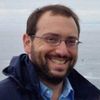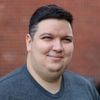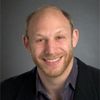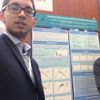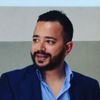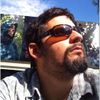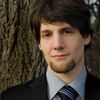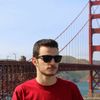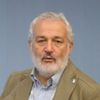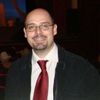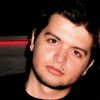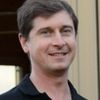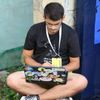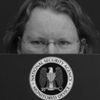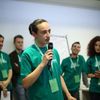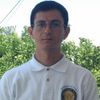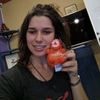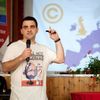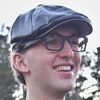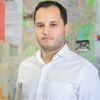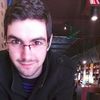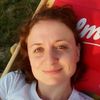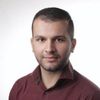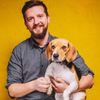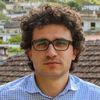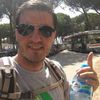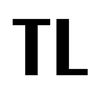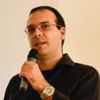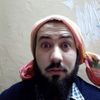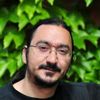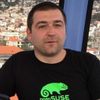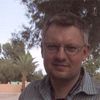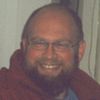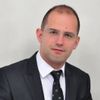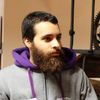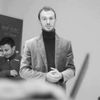Tracks
Saturday, 13th May
![]()
Brian Exelbierd (Fedora)
Lecture
- Brian Exelbierd (Fedora)
- Lecture
In school we are taught to write everything. Modern applications are built on the backs of great frameworks, let's explore the process. This talk-shop will walk students through the process of growing an idea from a seed into a full fledged application while focusing on leveraging existing frameworks and code as much as possible. The example will be based on a proposed documentation publishing system for Fedora. The concept grows from "Publish AsciiDoc" to have an automatically publishing container based pipeline for maintaining a documentation website. Technologies used will mostly include: AsciiDoc, AsciiDoctor, AsciiBinder, OpenShift, and Jenkins.
Fedora
Brian Exelbierd works is the Fedora Community Coordinator and has a background in Higher Education and IT/Engineering. Follow him @bexelbie
*Talk 1
Saturday, 13th May, 08:30 - 09:00
- Open Workflow
![]()
Alex Lakatos (Mozilla)
Talk
- Alex Lakatos (Mozilla)
- Talk
We'll learn to use the Firefox Developer Tools like a regular web developer so we can Inspect The Web. This activity will allow people to get a better understanding of the DevTools baked into Firefox and what they can do to increase their proficiency.This is a hands on talk, no slides attached, we're going to cover the Page Inspector - with CSS, Selectors and Animations - the Console, Debugger, Storage Inspector and then we'll showcase the Firefox Developer Edition.
Mozilla
Alex Lakatos has been a Mozilla Representative Mentor and contributor to the Mozilla project for the past six years, based in London. JavaScript developer building on the open web, he has been pushing its boundaries every day. You can check out his github profile or get in touch on twitter. When he’s not programming, he likes to travel the world, so it’s likely you’ll bump into him in an airport lounge.
*Talk 2
Saturday, 13th May, 12:15 - 12:45
- Open Workflow
![]()
George Roter (Mozilla)
Talk
- George Roter (Mozilla)
- Talk
We've taken deep, data-driven and analytical approach to understanding Mozilla's contributors and communities -- these are our findings!
Mozilla
George Roter is Head of Core Contributors, Participation at Mozilla, responsible for increasing the impact of contribution and external collaboration on Mozilla's products and technologies.
*Talk 1
Saturday, 13th May, 09:00 - 09:30
- Community Building
![]()
Matteo Bonanomi (WikiToLearn)
Talk
- Matteo Bonanomi (WikiToLearn)
- Talk
How to engage people in your open source community using social networks? Which problems can you encounter and how can you solve them? In this talk we try to answer these questions, starting from my point of view here at WikiToLearn. We are discussing the meaning of community building using social networks, their strength and weaknesses. Social networks are one of the most powerful means of community building nowadays, if used properly! In this talk we try to point out the difference between getting likes and getting people involved, using socials. Getting likes is only the starting point: we discuss how to go from likes to real engagement... For example the organization of an entire conference dedicated to your project, as we did this year with WikiToLearnConfIndia2017!
WikiToLearn
Master in Physics student at UNIMIB. Communication and socials manager at WikiToLearn. Open source lover at 360°. Interested in open education and free learning themes.
*Talk 2
Saturday, 13th May, 09:00 - 09:30
- Community Building

Michael Ellis (Mozilla)
Meetup
![]()
- Michael Ellis (Mozilla)
- Meetup
Mozilla Meetup
![]()
Mozilla
Michael Ellis is the Technical Program Manager for the Developer Relations Team at Mozilla, where he co-leads the Tech Speakers program.
Meetup 1
Saturday, 13th May, 10:30 - 11:30
- Community Building
![]()
Adam Hyde (Collaborative Knowledge Foundation)
Lecture
- Adam Hyde (Collaborative Knowledge Foundation)
- Lecture
What happens when users design software? Adam will present Editoria, an open source monograph system, designed by the staff of the University of California Press and the Californian Digital Library. The software is a very innovative approach to workflow problems many publishers share and the process challenges the embedded notion that 'users dont know what they want'. Adam will also discuss the methodology used to enable users to design their solutions and how they work with developers and UX specialists to build it.
Collaborative Knowledge Foundation
Adam is the Co-Founder of the Collaborative Knowledge Foundation and has been involved in open source for 20 years. He is also the founder of FLOSS Manuals, Book Sprints, Booktype, and other open source projects. Adam is also a fellow at the Shuttleworth Foundation.
*Talk 2
Saturday, 13th May, 12:45 - 13:45
- Community Building
![]()
Gjergji Hamiti (Local Web)
Lightning Talk
- Gjergji Hamiti (Local Web)
- Lightning Talk
Commercial and business use of technology
Local Web
p { margin-bottom: 0.1in; direction: ltr; line-height: 120%; text-align: left; } Gjergji Hamiti is a PR and Communication strategist. Some of his areas of expertise include political PR and marketing, corporate communications strategies, media marketing campaigns and digital marketing.
*Talk 3
Saturday, 13th May, 13:15 - 13:45
- Community Building
![]()
Gergely Rákosi (Fedora)
Lecture
- Gergely Rákosi (Fedora)
- Lecture
All mighty things what you want to know how to run games on Fedora Linux.
Fedora
He is the one of the three Fedora Ambassador in Hungary, or like the others calls him the "Fedora Gamer". He got this name when he started to play windows games on Fedora linux with Wine approx. six years ago. Nobody thought six years ago we will have so many games on Linux like this year. More than 2000 games, and mostly natively runs on linux. Why we need games on linux ? Not just for fun. We can show the power of Linux, we can get more participants, we can more stronger within the Fedora community. The fact is, the bash not really exciting in all forms :-).We need to show some kind of eyecandy stuffs at the events, Fedora booth. In the hard life, He is an entrepreneur. He manage two companies, and give IT support to our clients, on desktop and server side too. The servers usually are Fedora servers. He has family, with two kids. His hobby is Dj-ing music in clubs.
*Workshop 1
Saturday, 13th May, 13:15 - 14:15
- Games
![]()
Matthias Kirschner (Free Software Foundation Europe)
Lecture
- Matthias Kirschner (Free Software Foundation Europe)
- Lecture
The long way to empower people to control technology Software is deeply involved in all aspects of our lives. It is important that this technology empowers rather than restricts us. Free Software gives everybody the rights to use, understand, adapt and share software. These rights help support other fundamental rights like freedom of speech, freedom of press and privacy.The Free Software Foundation Europe is a charity that empowers users to control technology by:- helping individuals and organisations to understand how Free Software contributes to freedom, transparency, and self-determination.- enhancing users' rights by abolishing barriers to Free Software adoption.- Encouraging people to use and develop Free Software.- Providing resources to enable everyone to further promote Free Software in Europe. In this talk Matthias will talk about how he joined the FSFE, highlight theimportance of Free Software for society, give some examples of the FSFE's work from the past 15 years, and show how you as individual or organisation can work with us the FSFE for software freedom.
Free Software Foundation Europe
FSFE 's President. Working for Free Software, so every individual in our society can self-determined use, study, share, and improve software.
*Talk 1
Saturday, 13th May, 07:30 - 08:30
- Free Software
![]()
Jan-Christoph Borchardt (Next Cloud & open Source Design)
Workshop
- Jan-Christoph Borchardt (Next Cloud & open Source Design)
- Workshop
Nextcloud is open source software for file sync & share, calendars, contacts, video calls and much more. We are a welcoming community where you can easily get involved – so let’s get you started! :)
Next Cloud & open Source Design
Jan-Christoph Borchardt is an open source designer focused on Nextcloud and Open Source Design.
*Workshop 1
Saturday, 13th May, 07:30 - 08:30
- Free Software
![]()
Zacharias Mitzelos (Fedora Project)
Workshop
- Zacharias Mitzelos (Fedora Project)
- Workshop
We will discover Copr, create a demo package and push it to Fedora's easy-to-use automatic build system, using Copr to host our package and make it publicly available.
Fedora Project
Part of Fedora for over 4 years, Zach is interested in Soft. Engineering. Currently studying at the the Univ. of the Aegean in Samos, Greece
*Workshop 1
Saturday, 13th May, 08:30 - 09:30
- Free Software
![]()
Boris Budini (Open Labs Hackerspace)
Lightning Talk
- Boris Budini (Open Labs Hackerspace)
- Lightning Talk
Servo is a web browser engine written in rust programming language. Hence it adapts to the features of the rust which are high performances, memory safety; no data races, automatic memory management and concurrency built in. Servo is a project sponsored by Mozilla, it is also an open source free software project which anyone can contribute towards it. The main aim of servo is to create an architecture that uses parallelism in multiple ways whilst preventing bugs/ security issues that can end up affecting memory management and data races.Servo aims to parallelism as much as possible as servo aims for high performance and safety. What sets Servo apart from other engines, such as Google's Blink or Microsoft's Edge Html, is its use of parallelism, which sees tasks distributed across multiple processor cores.
Open Labs Hackerspace
Currently studying in first year of highschool. Been involved in open source projects since 2015. Open source hardware fanboy.
*Talk 3
Saturday, 13th May, 09:00 - 09:30
- Free Software
![]()
Riccardo Iaconelli (KDE)
Talk
- Riccardo Iaconelli (KDE)
- Talk
Frameworks such as Meteor.js are simplifying and streamlining the user experience and create fast and responsive interfaces on the web. Why have traditional applications completely missed out on this trand? With the help of Qt, we can change this situation.At the end of the talk the attendees will know how to create multiplatform applications (for desktop AND mobile) using only native APIs: those applications will communicate a remote backend just like they were Javascript code running in the browser.
KDE
Founder @WikiToLearn. Physicist. Entrepreneur. Free knowledge lover.
*Talk 3
Saturday, 13th May, 09:30 - 10:00
- Free Software
![]()
Italo Vignoli (The Document Foundation)
Lecture
- Italo Vignoli (The Document Foundation)
- Lecture
LibreOffice migration protocol, as suggested by The Document Foundation to organization deploying LibreOffice.
The Document Foundation
OSI board member, TDF founder and team member, LibreOffice advocate
*Talk 1
Saturday, 13th May, 09:30 - 10:30
- Free Software
![]()
Elvis Plaku (SfidaBiznesi)
Workshop
- Elvis Plaku (SfidaBiznesi)
- Workshop
How to use Mautic to implement marketing automation for your projects.
SfidaBiznesi
Elvis is a digital marketer and consultant. Though not a developer by trade he operates as a professional user and implementer of open source software throughout all his projects and consultancies.
*Workshop 1
Saturday, 13th May, 09:30 - 10:30
- Free Software
![]()
Jan-Christoph Borchardt (Next Cloud & open Source Design)
Talk
- Jan-Christoph Borchardt (Next Cloud & open Source Design)
- Talk
Keeping your data safe is increasingly important in a world of Google, Facebook, Amazon, Apple & co. That’s why we develop Nextcloud to be as easy and useful as the proprietary platforms – but with you in control.
Next Cloud & open Source Design
Jan-Christoph Borchardt is an open source designer focused on Nextcloud and Open Source Design.
*Talk 3
Saturday, 13th May, 10:00 - 10:30
- Free Software
![]()
Ardian Haxha (Fedora Project)
Workshop
- Ardian Haxha (Fedora Project)
- Workshop
You may find your self travelling to different places around the world like just right now, you are visiting a conference in a city you have never been before, or you decide to go to the mountains. You find yourself in a situation that a map could really help or you need to fix something in your code and you just forgot that syntax for this big npm module that isn't even installed? This topic could give you some tips and tricks. A workshop focused in offline-first internet.
Fedora Project
Interested in offline-first web apps, community building around Mozilla and Fedora.
*Workshop 2
Saturday, 13th May, 10:30 - 11:30
- Free Software
![]()
Chris Lamb (Debian)
Lecture
- Chris Lamb (Debian)
- Lecture
Whilst anyone can inspect the source code of free software for malicious flaws, most Linux distributions provide binary (or "compiled") packages to end users.The motivation behind "reproducible" builds is to allow verification that no flaws have been introduced during this compilation process by promising identical binary packages are always generated from a given source.This prevents against the installation of backdoor-introducing malware on developers' machines - an attacker would need to simultaneously infect or blackmail all developers attempting to reproduce the build.This talk will focus heavily on how exactly software can fail to be reproducible, the tools, tests & specifications we have written to fix & diagnose issues, as well as the many amusing "fails" in upstream's code that have been unearthed by this process. In addition, you will learn what to avoid in your own software as well as the future efforts in the Reproducible Builds arena.
Debian
@LinuxFoundation grantee, freelance programmer
@Debian developer
@Ironman
Classical musician
*Talk 2
Saturday, 13th May, 10:30 - 11:30
- Free Software
![]()
Sopot Çela (Red hat)
Talk
- Sopot Çela (Red hat)
- Talk
This talk will describe what it means to do Open Source engineering while working for Red Hat. We will go into the details of the challenges, cooperation and satisfaction that make up my daily work.We'll look at it both from the high-level philosophical point of view of "why the hell does Red Hat spend salary money on free stuff!?" to the low-level detail of what I do all day.I'll also provide a quick introduction to how I ended up from the desks of the Technical University of Tirana (Universiteti Politeknik i Tiranës) to the open source engineering teams of Red Hat.
Red hat
Sopot Çela is a core developer of the Eclipse platform working for Red Hat engineering. He likes open source and has been working with and for it for almost 10 years.
*Talk 3
Saturday, 13th May, 11:00 - 11:30
- Free Software
![]()
Daniel Pocock (Debian project)
Workshop
- Daniel Pocock (Debian project)
- Workshop
A brief introduction to Ham Radio, SDR and the RTL-SDR dongles with Debian.
Debian project
Professional software engineer, consultant, radio amateur and Debian Developer
*Workshop 1
Saturday, 13th May, 12:15 - 13:15
- Free Software
![]()
Suela Palushi (phpList)
Workshop
- Suela Palushi (phpList)
- Workshop
An overview on phpList, the open source email marketing system
phpList
I am an Albanian Business Informatics student, finishing my master studies in Information Systems at the University of Tirana. Iam a hacktivist of Open Labs, passionate about Open Source and the philosophy of transparency and cooperation that FLOSS represents. I have been working on promoting FLOSS in Albania and Fedora Localization Project to bring everything around Fedora closer to the local users.I am also focused on drawing attention on woman empowerment issues in open technology and culture.
*Workshop 2
Saturday, 13th May, 12:15 - 13:15
- Free Software
![]()
Besfort Guri (FLOSSK / OpS - IN)
Workshop
- Besfort Guri (FLOSSK / OpS - IN)
- Workshop
This workshop is designed to help users who are new to QGIS to find their way around, and to understand some of its main features. It doesn't assume an understanding of GIS, though if you are familiar with GIS you'll be able to move through much quicker.
FLOSSK / OpS - IN
Besfort is founder and CEO of OpS-IN. He is member of FLOSSK & HOTOSM. Open Data Advocate.
*Workshop 2
Saturday, 13th May, 13:15 - 14:15
- Free Software
![]()
Arjen Kamphuis (Beehive 4.2 / Hack42)
Lecture
- Arjen Kamphuis (Beehive 4.2 / Hack42)
- Lecture
12 year before Snowden the EU already knew they should not trust US tech but chose to make itself more dependent on it anyway. We need a radical change in the way we select the tech that runs our society.Without reliably working software and data-processing the modern world stops working. From the supermarkets where you get your food to the electricity or gas that heats it up to the water that cleans your plate afterwards; IT is everywhere but still has a long way to go to reach the reliability of older technologies (such as the basic elements of the powergrid). IT is still developing very rapidly and new developments are stacked on top of slightly older ones. So on the one hand we now have 'smart' thermostats you can control via an app but on the other hand those thermostats can easily be hacked and then operated, in their millions, by someone else. When these same technologies are applied to industrial systems things risk start to look more like a bad Hollywood thriller scenario and less like the paper wisdom of ITIL-certification courses.The Stuxnet case and the revelations by Edward Snowden have shown how fundamental the problems (and challenges to fix them) are. Most systems and platforms in common use are, by design untrustworthy in ways that cannot be fixed barring regime change in the US. While a lot more work needs to be done on detecting breaches of security sooner this does not really solve any problems, just cleans up the mess afterward.In order to re-gain trust in systems because we can *trust* them we need to be willing to move away from proprietary systems and 'cloud' computers under the control of foreign powers. Even the most common used hardware platforms and CPU-architectures need to be up for discussion and replacement by more trustworthy alternatives. Nothing is irreplaceable and by replacing what we know we cannot trust by things we can a future of computing under control of citizens is possible.
Beehive 4.2 / Hack42
Securing all the cybers, Free Software advocate, mountaineer, sailor, carpenter, geek and damn proud of it. PGP KeyID: 0x173F0BCA
*Talk 1
Saturday, 13th May, 13:45 - 14:45
- Free Software
![]()
Arion Banishta (FLOSSK / Mozilla)
Workshop
- Arion Banishta (FLOSSK / Mozilla)
- Workshop
I'm going to start with a light lecture that shows to people what Virtual Reality is, when and why it was invented and thing related with that and than continue with a lecture about MozVR and at the and a demoing for all attendees about WebVR / MozVR
FLOSSK / Mozilla
Arion studies Computer Science and Engineering at High School. Also he is a programmer, cyber security enthusiast, mozillian and works with 3D Printers and open hardware.
*Workshop 1
Saturday, 13th May, 14:15 - 15:15
- Free Software
![]()
Dashamir Hoxha (Canadian Institute of Technology (CIT))
Lightning Workshop
- Dashamir Hoxha (Canadian Institute of Technology (CIT))
- Lightning Workshop
Edubuntu and LTSP can help a teacher to manage easily the computers of a class room. In this workshop we will see how.
Canadian Institute of Technology (CIT)
Dashamir is a Computer Engineer with experience in software engineering, linux administration, network, configuration managment, documentation writing, etc.
*Workshop 2
Saturday, 13th May, 14:15 - 14:45
- Free Software

Paul Neumann (Metropolitan Geospatial Centre)
Workshop
![]()
- Paul Neumann (Metropolitan Geospatial Centre)
- Workshop
Learn how to build a secure system for anonymous transmission, acquisition, storage, and processing confidential and otherwise sensitive data in the world where privacy and liberty are not granted any more.
![]()
Metropolitan Geospatial Centre
Paul is a managing partner at the Metropolitan Geospatial Centre (MGC), as well as a member of several international projects focused on development and implementation of cyber security.
*Workshop 2
Saturday, 13th May, 07:30 - 08:30
- Open Knowledge
![]()
Chris Ward (Red Hat)
Workshop
- Chris Ward (Red Hat)
- Workshop
This workshop is for folks who want to contribute to the development of the FLOSS community by organizing events or activities (meet-up, [un]conference, lectures, dojo, …), for a project, at school, in their home country or anywhere else. Participation does not require previous experience organizing FLOSS activities but everyone must know which community they wish to support.After briefly covering types of events that are possible to organize (to inspire), dispelling some common myths about what's required to make a positive difference on the FLOSS community (to build confidence) and introducing ourselves and our communities or interest, I will walk the participants through a basic creative thinking and interactive excersize to help everyone prepare a strawman proposal and get them committed to taking the 'next steps' to organize the FLOSS event of their choice. Plus free tips and hints!
Red Hat
Red Hat Czechia Community Development lead, lead DevConf.cz and PyCon.cz organizer, Pythonista and long-term opensource user
*Workshop 2
Saturday, 13th May, 09:30 - 10:30
- Open Knowledge
![]()
Manel Rhaiem (Mozilla Tunisia)
Workshop
- Manel Rhaiem (Mozilla Tunisia)
- Workshop
Data now is very important as thing to understand and to know how to use and how to play with, with Data we can lie and we can bring the right insight and solutions for any complicated things. Every piece in this world Machine, language, application we can find data behind it. In my workshop I will explain why what and how we get Data to let them leave the present how it's useful, with a simple example and simple open source tools.
Mozilla Tunisia
Manel Rhaiem, a woman in tech, from Tunisia, joined the IT world in 2010, when as a developer she got involved with the local open source club at her university, focusing on web technologies. A Mozilla representative since 2013, she’s a tech speaker and passionate about Data. For more information check out her blog.
*Workshop 1
Saturday, 13th May, 10:30 - 11:30
- Open Knowledge
![]()
Alban Xhaferllari (Distilled Schibsted)
Talk
- Alban Xhaferllari (Distilled Schibsted)
- Talk
The Web evolves at an incredible speed, from 90 to now days we have seen the born of Email, Mobiles, Cloud, Browsers... Many business many great companies today relies on Internet that is why is very important to provide a great user experience. Online users are growing every year but not every of them can rely on a fast internet connection or a powerful device.
Amazon found that every 100 milliseconds of latency cost them 1% in sales, google found that an extra 0.5 seconds in search page generation time, dropped traffic by 20%. A broker could lose $4 million in revenues per millisecond if their electronic trading platform is 5 milliseconds behind the competition.
Progressive web apps are current and future technologies that we can use today on our web application, without needing to re-write from scratch our applications by introducing progressively new features and improvements.
Distilled Schibsted
Alban is a software developer with 10 years experience in web development. He love elegant code, passion for science and new technologies. Playing with Javascript, Angular and functional programming. Contributing to open source software on free time. He is a big fun of Uncle Bob.
*Talk 3
Saturday, 13th May, 10:30 - 11:00
- Open Knowledge

Bledar Gjocaj (ikubINFO)
Talk
![]()
- Bledar Gjocaj (ikubINFO)
- Talk
What is shaping the software development world now?
How is software built nowadays?
Is there any change in how software is structured, served, consumed and generally used?
What's the big deal with big data, microservices, the javascript frenzy, containers etc?
Is any of this stuff valuable, open, usable? Is it worth the effort?
How do I decide what to use and what not?
![]()
ikubINFO
Bledar loves building software, loves the ideas behind open source (FLOSS) and what it constantly brings to the software development world and technology in general.
*Talk 3
Saturday, 13th May, 12:15 - 12:45
- Open Knowledge
![]()
Dimitar Dimitrov (Wikimedia)
Talk
- Dimitar Dimitrov (Wikimedia)
- Talk
Copyright digitisation and related rights are increasingly being used to lock up our cultural heritage beyond the original, and already too long, copyright terms. We need to safeguard access to our cultural heritage and a positive definition of the public domain.
Wikimedia
Political scientist, global villager, coffee addict. In Wikimedia referred to as 'the Brussels guy'.
*Talk 1
Saturday, 13th May, 12:16 - 12:45
- Open Knowledge
![]()
Oliver Sauter (WorldBrain.io)
Talk
- Oliver Sauter (WorldBrain.io)
- Talk
With WorldBrain we work on developing a scalable solution to online misinformation.
Doing so with an open-source search engine for your personal knowledge that lets you share your information bubble and explore the bubbles of the people you trust.
By doing web-research and consuming content, everyone builds their own personal information bubble. These bubbles, in which people mentally evaluated every article they saw for its relevance and trustworthiness, as well how they were related, hold immense value to themselves and others.
Imagine a world, where you can translate all the mental associations that make up your bubble into data and exchange it with your friends, followers and other applications in a self-determined way. #ownyourdata
In this talk you'll learn how we aim to get there and how this network of sharing can contribute to fighting online misinformation as well as lay the foundation for many other use cases.
WorldBrain.io
Founder of WorldBrain.io. Started to battle #fakenews before it was cool.
*Talk 1
Saturday, 13th May, 13:15 - 13:45
- Open Knowledge
![]()
Renata Gegaj (GNOME)
Talk
- Renata Gegaj (GNOME)
- Talk
This talk will reveal the very basics of what usability is and how it is measured. Renata will show a simple way to test usability of open source software with minimal resources, to get useful feedback for you and usable interfaces for users.
GNOME
Renata Gegaj is a Computer Science student with a passion for open source technologies and Human–computer interaction (HCI).
*Talk 2
Saturday, 13th May, 08:30 - 09:00
- Open Source Design
![]()
Sam Penrose (Mozilla)
Lecture
- Sam Penrose (Mozilla)
- Lecture
It takes a good team and a lot of open source tools to turn billions of Firefox transmissions into quality datasets. We will learn how Mozilla's built a pipeline with nginx; Kafka; Hindsight and Lua; AWS EMR and S3; Spark and Parquet; Postgres; and d3.js. We will see that SQL solves some hard problems and creates some new problems (that we will learn how to fix). Coders will learn recipes for compressing big data to laptop scale with controllable and transparent losses. Managers will learn how to build a team that makes data valuable and easy to use. Principles discussed are independent of toolsets.
Mozilla
Sam does big data engineering at Mozilla
*Talk 2
Saturday, 13th May, 07:30 - 08:30
- Open Data
![]()
Justin W. Flory (Fedora Project / MusicBrainz / SpigotMC)
Workshop
- Justin W. Flory (Fedora Project / MusicBrainz / SpigotMC)
- Workshop
MusicBrainz is an open source music encyclopedia powered by community-contributed metadata. With MusicBrainz, it’s possible to not only contribute artist, album, and track information for your favorite music, but using the MusicBrainz Picard app, you can take back control of your local music library to have it use correct metadata, album artwork, and more. Laptop with some local music files recommended for the best experience.
Fedora Project / MusicBrainz / SpigotMC
Justin W. Flory is a student at the Rochester Institute of Technology and Fedora Project contributor. He contributes in various parts of the Fedora community, contributes data to MusicBrainz, helps lead open source events and outreach at his university, and is passionate about open source communities.
*Workshop 2
Saturday, 13th May, 08:30 - 09:30
- Open Data
![]()
Joni Baboci (Bashkia Tirane)
Lightning Talk
- Joni Baboci (Bashkia Tirane)
- Lightning Talk
In this session, Joni Baboci from the Municipality of Tirana will explain the process behind the Open Data Tirana portal, launched in April 2017 and its importance towards the decentralization of information and data.
Bashkia Tirane
Joni Baboci is a planner, architect and all-around urban enthusiast. He is currently working as the General Director of Planning and Urban Development at the Municipality of Tirana leading a team of 100+ architects, planners and engineers. His previous experiences include stints in the private sector, a number of successful international architecture competition results as well as a multi-year experience leading a groundbreaking planning and architecture start-up for the Albanian Government nicknamed Atelier Albania. He has meddled with planning and development at different scales working on the national plan for Albania, the regional plan for the coast of the country, and the regional plan for the economic generator of the country, the Tirana-Durres region. His responsibilities at the Municipality of Tirana consist of the surprises, urgencies and expectations of a bustling vibrant capital in the center of the Balkans. Collaborative creative processes, leading from behind, alternative planning methodologies, and quick and practical fixes would best describe his daily duties; but dealing with administrative bureaucracy, piles of paperwork, building permitting and cross-institutional collaboration, often gets in the way. He is extremely passionate about architecture and planning and is currently focused on exploring innovation in urban redevelopment while employing more sustainable, implementable and functional planning methodologies.
*Talk 1
Saturday, 13th May, 14:45 - 15:00
- Open Data

Marie Gutbub (Courage Foundation)
Lecture
![]()
- Marie Gutbub (Courage Foundation)
- Lecture
Protect your privacy. NSA, GHCQ, BND, Google, Facebook & co are watching you. You know it, you have heard it over and over again, and there's probably a little voice in your head that tells you that you should do something about it. But what? Get all the tools, encrypt all the things, use TOR, PGP, OTR and the rest. And that is where you stop listening to that voice in your head. Only few of these tools are easy to understand, to get started with, and to use on a daily basis. User pain level: too high. This is why movements like CryptoParty exist - and it shouldn't be the case. CryptoParty must die!
![]()
Courage Foundation
Marie Gutbub is an information security trainer, campaigner and journalist (ex-CryptoParty, CIJ & TorProject)
*Talk 2
Saturday, 13th May, 09:30 - 10:30
- Privacy and Policy Making
![]()
![]()
Italo Vignoli (The Document Foundation), Matthias Kirschner (Free Software Foundation Europe)
Panel
- Italo Vignoli (The Document Foundation), Matthias Kirschner (Free Software Foundation Europe)
- Panel
Free and open source software and open data in public administration.
The Document Foundation
OSI board member, TDF founder and team member, LibreOffice advocate
Free Software Foundation Europe
FSFE 's President. Working for Free Software, so every individual in our society can self-determined use, study, share, and improve software.
*Talk 1
Saturday, 13th May, 10:30 - 11:30
- Privacy and Policy Making
Sunday, 14th May


Albert Lekaj (Open Data Kosovo), Adelina Hajrizi (Techstitution)
Workshop
![]()
![]()
- Albert Lekaj (Open Data Kosovo), Adelina Hajrizi (Techstitution)
- Workshop
Being one of the most used Open-Source website building platforms, Bootstrap revolutionized the way we design & develop websites. The workshop will cover Bootstraps core features like responsiveness, the 12 column grid and their order, the components, the way it handles JavaScript and how to customize Bootstrap for your own purposes. The workshop will also cover the design thinking & doing in Bootstrap with its iconography, typography, colors and how to combine them to come up with a better looking and user friendly design.
![]()
Open Data Kosovo
Web/App Designer based in Prishtina that loves the psychology of design
![]()
Techstitution
Front-End Developer, Cyber Security Analyst and Open-Source user & advocate
*Workshop 1
Sunday, 14th May, 11:45 - 12:45
- Open Source Design

![]()
Marie Gutbub (Courage Foundation), Arjen Kamphuis (Beehive 4.2 / Hack42)
Workshop
![]()
- Marie Gutbub (Courage Foundation), Arjen Kamphuis (Beehive 4.2 / Hack42)
- Workshop
A workshop dedicated to online security in today's digital world
![]()
Courage Foundation
Marie Gutbub is an information security trainer, campaigner and journalist (ex-CryptoParty, CIJ & TorProject)
Beehive 4.2 / Hack42
Securing all the cybers, Free Software advocate, mountaineer, sailor, carpenter, geek and damn proud of it. PGP KeyID: 0x173F0BCA
*Workshop 2
Sunday, 14th May, 12:15 - 14:15
- Security

Geron Imeraj (VIVO Communication)
Talk
![]()
- Geron Imeraj (VIVO Communication)
- Talk
My topic is being referred to TEMPEST. TEMPEST it's an complicated attack of offline computers using EMF. It is referring to spying on information systems through leaking emanations, including unintentional radio or electrical signals, sounds, and vibrations. TEMPEST covers both methods to spy upon others and also how to shield equipment against such spying. The protection efforts are also known as emission security (EMSEC), which is a subset of communications security (COMSEC). The NSA methods for spying upon computer emissions are classified, but some of the protection standards have been released by either the NSA or the Department of Defense.Protecting equipment from spying is done with distance, shielding, filtering, and masking.The TEMPEST standards mandate elements such as equipment distance from walls, amount of shielding in buildings and equipment, and distance separating wires carrying classified vs. unclassified materials, filters on cables etc.
![]()
VIVO Communication
Geron Imeraj works in "Vivo Comm" for seven years. He began as "TSR" and now works as "Net. Administrator". He is passionate about security, specifically Cyber Sec. , Cisco and Fedora.
*Talk 3
Sunday, 14th May, 14:45 - 15:15
- Security
![]()
František Zatloukal (Fedora Project)
Lecture
- František Zatloukal (Fedora Project)
- Lecture
I would like to talk about playing mainstream AAA games on Fedora, from the native ports to using Wine. I would go through the most common issues which Gamers on Fedora can face and provide solution for them. I will give few recommendations how to increase gaming performance on Fedora. Preview of actual situation around drivers for GPUs, few benchmark scores with direct comparison of performance on Windows. I will also talk a little bit about graphics APIs which are used nowadays by developers. In the end, I'd offer my own view on how will Gaming on Fedora evolve in the future.
Fedora Project
Young open-source enthusiast, developer, Fedora Ambassador for Czech Republic. Works as Associate Software Engineer at Red Hat and is editor in chief on mojefedora.cz .
*Talk 1
Sunday, 14th May, 10:00 - 11:00
- Games
![]()
Brian Exelbierd (Fedora)
Meetup
- Brian Exelbierd (Fedora)
- Meetup
Fedora Meetup
Fedora
Brian Exelbierd works is the Fedora Community Coordinator and has a background in Higher Education and IT/Engineering. Follow him @bexelbie
Meetup 1
Sunday, 14th May, 09:00 - 10:00
- Community Building
![]()
Aldo Ziflaj
Talk
- Aldo Ziflaj
- Talk
The talk will be focused on activities every tech-related individual can be involved into, including ways to contribute to communities and Open Source projects, hopefully encouraging more people to invest (intellectually) in Albanian Open Source projects.
Aldo is a software developer with a sweet spot for cutting edge technology. He uses Atom (the Open Source code editor) to write Ruby on Rails (also Open Source) code in a Linux machine (again, Open Source).
*Talk 2
Sunday, 14th May, 11:45 - 12:15
- Community Building
![]()
Justin W. Flory (Fedora Project / MusicBrainz / SpigotMC)
Talk
- Justin W. Flory (Fedora Project / MusicBrainz / SpigotMC)
- Talk
One of the most well-known writers of literature, J.K. Rowling is a master of storytelling. What you might not have guessed is that open source and J.K. Rowling have something in common. The importance of storytelling in open source projects is as important as some of Rowling's famous characters in Harry Potter. In this session, speaker Justin W. Flory introduces the role of storytelling in open source projects and how to uncover that narrative. There a variety of tools and methods that can be used to help tell the story of project, particularly with data analysis. By the end audience members will understand the role of crafting the story of their open source project and how it motivates the community, what methods are available for writing this story, and what the outcome of focusing on storytelling results in.
Fedora Project / MusicBrainz / SpigotMC
Justin W. Flory is a student at the Rochester Institute of Technology and Fedora Project contributor. He contributes in various parts of the Fedora community, contributes data to MusicBrainz, helps lead open source events and outreach at his university, and is passionate about open source communities.
*Talk 1
Sunday, 14th May, 11:45 - 12:15
- Community Building
![]()
Marina Latini (The Document Foundation)
Talk
- Marina Latini (The Document Foundation)
- Talk
An open source community is made up of a mixture of professionals and volunteers from all over the world, working together. Diversity is one of the huge strengths, but it can also lead to communication issues and unhappiness. In this talk we will see the strategies to improve communications, avoid conflicts and create a more inclusive community opens to all the newcomers.The strength of the entire chain depends on its weakest link.
The Document Foundation
Fallen in love with LibreOffice, proud The Document Foundation chairperson, openSUSE Advocate, LibreItalia founder and foolish goalkeeper
*Talk 1
Sunday, 14th May, 12:15 - 12:45
- Community Building
![]()
Giannis Konstantinidis (Mozilla)
Talk
- Giannis Konstantinidis (Mozilla)
- Talk
Free & Open Source Software is dominating the world. It can be seen everywhere nowadays - computers, phones, smart devices. What is the true power of such technologies? That would be the communities. Thousands of people, coming from different backgrounds and living in all parts of the globe, contribute their time, talent and skills for the advancement of their favourite projects.Communities can sometimes be very large as well as extremely diverse, with contributors working seamlessly together. It is not always the case, however - communications are frequently less effective, goals are not met, or even conflicts arise.What does it take to foster a good community environment? What are the Do's and Dont's? During this talk, participants will have the opportunity to become acquainted with some of the best community development practices followed by leading organizations such as Mozilla.
Mozilla
Technical Coordinator at Ura Design. Sitepoint Author. Fedora Mentor, FAmSCo Vice-Chairman. Mozilla Techspeaker, ReMo. ICT Eng. Student.
*Talk 1
Sunday, 14th May, 12:45 - 13:15
- Community Building
![]()
Daniele Scasciafratte (Codeat)
Talk
- Daniele Scasciafratte (Codeat)
- Talk
There are many things that can help you your community on the localization and the glossary is the best way to start and create a team!
Discovery with the experience of the WordPress Polyglots team!
Codeat
Is a 26 old italian and Open Source Multiversal with problem of addicting, contributing and evangelism. CTO @CodeAtCode, Mozilla Volunteer and WordPress Contributor.
*Talk 3
Sunday, 14th May, 12:15 - 12:45
- Open Workflow
![]()
Sam Penrose (Mozilla)
Workshop
- Sam Penrose (Mozilla)
- Workshop
Coders use printf() and "step" to debug problems. On big distributed systems that doesn't work. You can get stuck. We will learn how to code fast and well on terabyte-scale data.First, we look at the problem: does your code break, is it too slow, or does it give strange answers?Next, you bring a sample of your data to a local process and debug your code using printf(), step, or whatever. Then you redistribute just the sample and see if it still works. Finally you try the debugged code on all the data.If it still doesn't work, the cause could be heterogenous data, exponential algorithms, or toolchain limits. You will learn six more techniques to find and solve the problem. Examples will use Spark, iPython, and AWS; principles and techniques apply to any distributed data system.
Mozilla
Sam does big data engineering at Mozilla
*Workshop 1
Sunday, 14th May, 08:00 - 09:00
- Open Data
![]()
Sidorela Uku (Open Labs Hackerspace)
Workshop
- Sidorela Uku (Open Labs Hackerspace)
- Workshop
We will going to presentation the firs steps of editing OpenStreetMap .
Open Labs Hackerspace
Sidorela is a student in software engineering. She is Open Labs Hackerspace member. She is passionate in coding and open source projects such as OpenStreetMap, Nextcloud and Wikipedia.
*Workshop 2
Sunday, 14th May, 09:00 - 10:00
- Open Data
![]()

Maria Xynou (OONI - The Tor Project), Arturo Filastò (OONI - The Tor Project)
Lecture
![]()
- Maria Xynou (OONI - The Tor Project), Arturo Filastò (OONI - The Tor Project)
- Lecture
This talk will present OONI (i.e. Open Observatory of Network Interference), a free software project that aims to empower the public around the world by enabling it to test networks and to collect data that can serve as evidence of internet censorship. Hundreds of users have run OONI's software over the last years, contributing to the world's largest database of internet censorship events from across the globe. This talk will shed light on key findings, explain how you can contribute to transparency around internet controls and how you can use OONI data as part of your investigations.
OONI - The Tor Project
Maria works with the Open Observatory of Network Interference (OONI) project where she examines internet censorship
![]()
OONI - The Tor Project
Arturo is the co-founder and lead software developer of the OpenObservatory of Network Interference (OONI), a free software project that has been examining internet censorship around the world since 2012.
*Talk 1
Sunday, 14th May, 13:15 - 14:15
- Open Data
![]()
Daniel Pocock (Debian project)
Lightning Talk
- Daniel Pocock (Debian project)
- Lightning Talk
Debian project
Professional software engineer, consultant, radio amateur and Debian Developer
*Talk 3
Sunday, 14th May, 15:15 - 15:30
- Open Hardware
![]()
Bruno Skvorc (SitePoint)
Lecture
- Bruno Skvorc (SitePoint)
- Lecture
Due to a heavily sedentary job, developers aren't usually the healthiest bunch. Throw in a freelancer's lifestyle for good measure, where every hour spent working can be turned into money, and it's hard to stay away from the computer - especially with bills to pay. A recent trend are standing desks, but in this talk, we'll talk about why they're doing more harm than good, what you can do instead, and where to go to get tips, tricks, and read about other people's experiences in becoming fit devs.
SitePoint
Bruno is a coder from Croatia with a Master’s Degree in Computer Science and English Language. He’s the editor of SitePoint’s PHP channel and a developer evangelist for Diffbot.com.
*Talk 1
Sunday, 14th May, 08:00 - 09:00
- Open Knowledge
![]()
Vangjel Stavro (Stavro Consulting)
Lecture
- Vangjel Stavro (Stavro Consulting)
- Lecture
Javascript is a scripting language. CoffeeScript is another scripting language that compiles into Javascript. Currently Javascript runs not only on browsers but is also used to run on servers. It is the most popular programming language on the Web. CoffeeScript on the other side is "just Javascript" which tries to amplify the good parts and minify the bad parts of Javascript. CoffeeScript has classes implemented naturally in the syntax of the language while Javascript requires developers to use classes. These, and many other differences, as well as similarities will be discussed throughout this talk.
Stavro Consulting
Vangjel is the founder of Stavro Consulting, a software development studio. He has been actively developing web apps for 6 years.
*Talk 2
Sunday, 14th May, 09:00 - 10:00
- Open Knowledge

![]()
Ardi Goxhaj (PLUS Communication), Edmond Cukalla (PlusCommunication)
Workshop
![]()
- Ardi Goxhaj (PLUS Communication), Edmond Cukalla (PlusCommunication)
- Workshop
JHipster is a free and open-source application generator used to develop quickly a modern web application using AngularJS and the Spring.
![]()
PLUS Communication
Ardi earned his B.S. in Computer Science from the University of La Sapienza and his M.S. of first level in Internet Technologies from University of Pisa. He primarily develops software in Java, but also has experience with other languages and primarily Open-Source Technologies. He has worked as a webmaster for Fondazione Mondo Digitale (mondodigitale.org) mastering web technologies and LAMP. He is currently working as VAS Senior Specialist for Plus Communication Sh.a.(plus.al) and has designed, developed and deployed many Java Enterprise Applications. Both developers and managers seek out his perspective on software development. He likes best practice and new technologies and is focused at making software development easier, faster, safer and funny.
PlusCommunication
Edmond works @PlusCommunication as VAS Senior Specialist and is exploring the fascinating world of software development.
*Workshop 1
Sunday, 14th May, 10:00 - 11:00
- Open Knowledge
![]()
Brennan Novak (Open Source Design)
Lecture
- Brennan Novak (Open Source Design)
- Lecture
Technologists often boast that "Thing X" will be a revolution that will change society. While the internet, personal computers, the world wide web, smart phones, tablets, and virtual reality are changing society at an incredible pace, there is another revolution which helps make all of those revolutions possible- that is open source and free software. However, FOSS projects and communities have always lacked one thing: designers. Luckily, this is starting to change, and like all revolutions, in order to succeed in shifting power balances- strategies and tactics are needed. This talk will explore how open source designers, developers, and makers can unite and continue to change the world.
Open Source Design
Formally trained designer, informally trained hacker from Berlin working on brining great design to open source. Co-founded Mailpile & Open Source Design.
*Talk 1
Sunday, 14th May, 09:00 - 10:00
- Free Software
![]()
Dashamir Hoxha (Canadian Institute of Technology (CIT))
Workshop
- Dashamir Hoxha (Canadian Institute of Technology (CIT))
- Workshop
Moodle is powerful tool that can support the teaching and learning process in universities and high schools. We will see how to install, manage and use it.
Canadian Institute of Technology (CIT)
Dashamir is a Computer Engineer with experience in software engineering, linux administration, network, configuration managment, documentation writing, etc.
*Workshop 1
Sunday, 14th May, 09:00 - 10:00
- Free Software
![]()
Thomas Levine
Lecture
- Thomas Levine
- Lecture
Horetu exposes Python functions as other user interfaces. When applied to a function, horetu automatically constructs corresponding command-line interfaces, web interfaces, IRC bots, graphical interfaces, and configuration files. In addition to being a very practical tool, it is interesting because its implementation demonstrates the capabilities of Python function objects and the merits of following conventions: Horetu can construct powerful interfaces and detailed documentation from functions that were written with no intent of being called with Horetu.
Thomas Levine is a dada artist interested in sleep. He has been writing free software for about twelve years.
*Talk 3
Sunday, 14th May, 09:00 - 10:00
- Free Software
![]()
Alexander Todorov (Red Hat)
Lecture
- Alexander Todorov (Red Hat)
- Lecture
Mutation testing is a technique in which the software under test is modified in order to verify how good your test suite is. I will introduce this technique, share practical examples in Python & Ruby and show a few bugs which were exposed during testing. I will also give a few hints about getting started with mutation testing in practice.
Red Hat
10+ years as open source QA, 1600+ found, Python & Ruby hacker
*Talk 2
Sunday, 14th May, 10:00 - 11:00
- Free Software

Alexandru Somesan (CoreOS)
Lecture
![]()
- Alexandru Somesan (CoreOS)
- Lecture
CoreOS Tectonic enables deploying same configuration Kubernetes clusters on multiple cloud providers. All based on open-source technologies.
![]()
CoreOS
A maker that enjoys to build things, be it software or a custom bicycle or 3D printed parts on his hand built printer. He's passionate about operating software in production and ensuring it's robustness.
*Talk 3
Sunday, 14th May, 10:00 - 11:00
- Free Software
![]()
Gabriele Falasca (Mozilla)
Talk
- Gabriele Falasca (Mozilla)
- Talk
From webassembly.org: "WebAssembly or wasm is a new portable, size- and load-time-efficient format suitable for compilation to the web". This talk introduces this stuff and illustrates how to permit to run binary code directly from browser.
Mozilla
Full stack developer, open source addicted, mozilla tech speaker an community member
*Talk 3
Sunday, 14th May, 11:45 - 12:15
- Free Software
![]()
Marios Magioladitis (Wikimedia Community User Group Greece)
Lightning Workshop
- Marios Magioladitis (Wikimedia Community User Group Greece)
- Lightning Workshop
AutoWikiBrowser (AWB) is a semi-automated MediaWiki editor designed to make tedious or repetitive editing tasks quicker and easier. We will make a hands on introduction of its features. We will answer questions and discuss ideas of how improve its functionality.
Wikimedia Community User Group Greece
Marios is a long-term Wikipedian and one of the developers of AutoWikiBrowser (AWB) an open source Mediawiki editor.
*Workshop 2
Sunday, 14th May, 11:45 - 12:15
- Free Software
![]()
Dimitar Zahariev
Lecture
- Dimitar Zahariev
- Lecture
We'll talk about Docker and the challenges of running a local repository. We'll continue with presentation of Portus as a reliable solution
Dimitar is an openSUSE Advocate from Bulgaria. In his free time he is spreading the word about it and helping others to adopt it.
*Talk 2
Sunday, 14th May, 12:15 - 13:15
- Free Software

Marcus Streets (Linux Foundation)
Talk
![]()
- Marcus Streets (Linux Foundation)
- Talk
A look at the history of the CII, from its foundation as a response to Heartbleed to today. A look at the projects it supports and a description of how to apply for funding.
![]()
Linux Foundation
Marcus runs the CII - Linux Foundations project that supports key Open Source Projects in the field of security.
*Talk 3
Sunday, 14th May, 12:45 - 13:15
- Free Software
![]()
Daniele Scasciafratte (Codeat)
Workshop
- Daniele Scasciafratte (Codeat)
- Workshop
Create a plugin for WordPress with Composer and many other libraries with a code generator in a nutshell.
Seems a boring topic but can speed up your knowledge of WordPress with live coding of a plugin from the speaker
Codeat
Is a 26 old italian and Open Source Multiversal with problem of addicting, contributing and evangelism. CTO @CodeAtCode, Mozilla Volunteer and WordPress Contributor.
*Workshop 1
Sunday, 14th May, 13:15 - 14:15
- Free Software
![]()
Marc Balmer (micro systems)
Lecture
- Marc Balmer (micro systems)
- Lecture
Lua is a scripting language popular in the game industry, automation and many other areas. This talk will give an overview of the Language, it's goals and implementation.
micro systems
open source developer with a open heart
*Talk 3
Sunday, 14th May, 13:15 - 14:15
- Free Software
![]()
John Sturdy (ARM)
Lecture
- John Sturdy (ARM)
- Lecture
GNUemacs is one of the earliest pieces of the GNU system, which started the Free Software revolution. This is an introduction to using Emacs for editing and everything else, with explanations of some of the key concepts; mostly as a user, but with some mention of customizing and programming it.
ARM
John has been programming since 1977, and started using GNUemacs since around 1987, which makes his configuration file older than some people with PhDs. He hopes he is still learning, and is happy to share the delights of the most powerful editor and user interface program.
*Talk 2
Sunday, 14th May, 13:15 - 14:15
- Free Software
![]()
Orges Cico (Metropolitan Incubator)
Workshop
- Orges Cico (Metropolitan Incubator)
- Workshop
The topic involves addressing the possibility for transforming most of the open source sdk of Google cloud into web services fully integrated with the cloud infrastructure. This would promote further software development and chances to exploit existing services with an open community to collaborate with such as Google Developer Experts (https://developers.google.com/experts/) . Attendees should interpret this as an opportunity example into the open source development oriented towards cloud systems supported by Linux based Virtual Machines.
Metropolitan Incubator
Orges Çiço holds a "laurea" (a.k.a. MSc) in Computer Engineering from the Polytechnic University of Turin, Italy and is currently a PhD Candidate at Tirana University in the Department of Statistics and Applied Informatics. His PhD field topic is in Cloud Computing Business Solutions and Cloud Software Reliability concerning Fault Tolerant Techniques.
*Workshop 1
Sunday, 14th May, 14:15 - 15:15
- Free Software
![]()
Daniel Pocock (Debian project)
Lecture
- Daniel Pocock (Debian project)
- Lecture
Proponents of free software are frequently asked "Can we replace Skype, Viber, Twitter and Facebook?". Is this the right question and how does it relate to free software development today and in the future? Pocock talks about the social consequences of this issue, looks at some of the successes we have had with examples based on Debian, some of the challenges that remain and ways that people can help either as developers or end users.
Debian project
Professional software engineer, consultant, radio amateur and Debian Developer
*Talk 3
Sunday, 14th May, 14:15 - 14:45
- Free Software
![]()
Roman Blanco (ManageIQ)
Lecture
- Roman Blanco (ManageIQ)
- Lecture
ManageIQ is an open-source cloud management platform capable of managing containers, virtual machines, networks, storage from a single pane of glass. As it supports a huge scale of providers, it is a good example of the collaboration across open-source communities. This talk introduces the project and demonstrates some of its features.
ManageIQ
Roman is working in Red Hat from 2014. He is mostly converting good music to Ruby code with a bit of JavaScript for ManageIQ team.
*Talk 1
Sunday, 14th May, 14:15 - 15:15
- Free Software
![]()
Engjell Rraklli (UnniTech)
Lecture
- Engjell Rraklli (UnniTech)
- Lecture
I am going to introduce the flagship game engine for game development in java. jMonkey has been around since 2002 and now is getting its next stable release. With lots of cool features to come, its a great choice for indie game developers to start their game development career. In the session I am going to explain in a few words what jMonkey history is. After that I will explain its features, make a presentation of its demos and last but not least, make a presentation of a demo project developed by me.
UnniTech
Engjell Rraklli is an entrepreneur. He has a computer science degree and a big passion for game development. He started designing games at the age of 15 and at the age of 21 he started his entrepreneurial journey founding his own software development company. He is very passionate about games in general, studying the technical aspects also the business side of it. Another thing he is very found of is open source technology. He is an avid user of linux and of open source software like libre office, Godot Engine, jMonkey engine and so on so forth.
*Talk 2
Sunday, 14th May, 14:15 - 15:15
- Free Software
![]()
Boris Budini (Open Labs Hackerspace)
Talk
- Boris Budini (Open Labs Hackerspace)
- Talk
Rust is a systems programming language that runs blazingly fast, prevents segfaults, and guarantees thread safety. Let's talk about that!
Open Labs Hackerspace
Currently studying in first year of highschool. Been involved in open source projects since 2015. Open source hardware fanboy.
*Talk 1
Sunday, 14th May, 15:15 - 15:45
- Free Software
- Games
- Open Source Design
- Privacy and Policy Making
- Break
- Opening Speech
- Community Building
- Open Data
- Open Knowledge
- Open Workflow
- Security
- Open Hardware
- Free Software
- Check in

